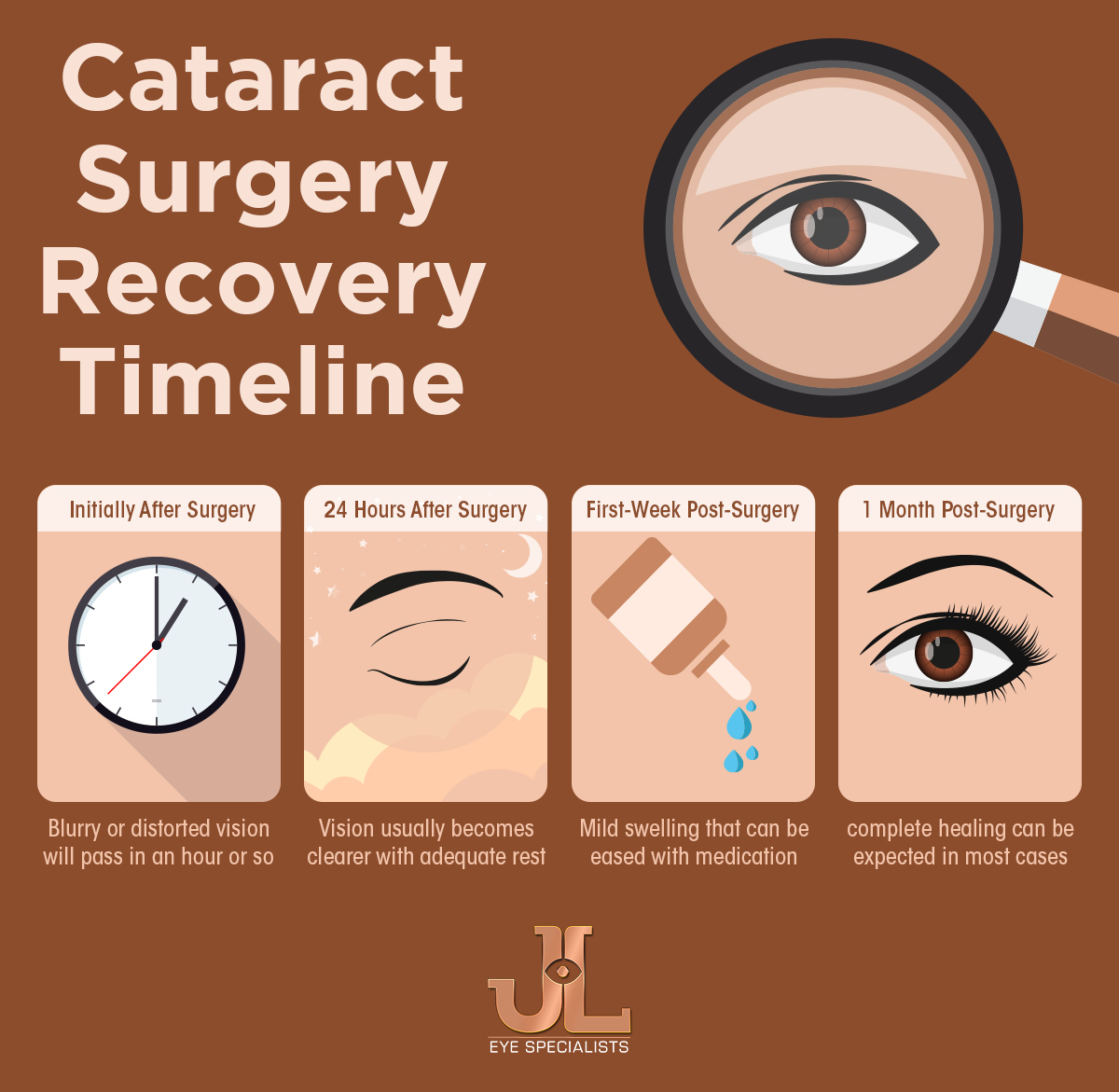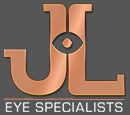Cataract Surgery Recovery Timeline

Cataracts represent a widespread and treatable eye disorder, impacting millions of individuals globally. In fact, there are more cataract cases than that of macular degeneration, glaucoma, and diabetic retinopathy combined. The primary and most effective treatment for cataracts is cataract surgery, a procedure that has been refined over the years to restore clear vision and significantly enhance the patient’s quality of life.
Cataract surgery stands out as the most frequently performed operation across all medical fields, with around 20 million procedures conducted annually worldwide, as highlighted by a 2021 research examining global cataract surgery trends.
For those considering cataract surgery or who have already scheduled the procedure, understanding the surgery and the subsequent recovery phase is crucial. This blog aims to offer a detailed exploration of cataract surgery, with a particular emphasis on the recovery timeline, ensuring you are well-informed and prepared for the journey ahead.
.
Cataract Surgery Evaluation
Cataract surgery involves removing the clouded natural lens and replacing it with a clear artificial lens, known as an intraocular lens (IOL). During the consultation, the ophthalmologist will explain the various types of IOLs available and how they work.
In preparation for surgery, a comprehensive review of the patient’s medical history is conducted. This includes evaluating current medications, and a detailed eye examination to assess the patient’s specific needs for the IOL. This examination encompasses a series of tests such as a computerised scan to estimate refractive errors like near-sightedness, far-sightedness, or astigmatism, and measurements of the eye’s size and shape to ensure the correct fit for the IOL. The ophthalmologist will also check visual acuity and eye pressure to identify any other eye conditions that could influence the surgery’s outcome.
Additionally, the use of prophylactic eye drops may be recommended prior to surgery to minimise swelling and infection risks. The ophthalmologist will also discuss the potential benefits and risks associated with cataract surgery, ensuring patients are fully informed before proceeding.
.
Learn More About: READ MORE: 3 Types of Cataract Surgery
How Is Cataract Surgery Done?
Cataract surgery is typically performed on an outpatient basis, allowing patients to return home the same day. It’s important for patients to arrange transportation to and from the surgery centre, as driving immediately after the procedure is not advisable.
The procedure begins with anaesthesia. To ensure comfort, patients may also receive medication to help them relax, as they remain conscious throughout the surgery.
The ophthalmic surgeon then uses a special microscope to view the eye and makes small incisions at the cornea’s edge, using either a fine blade or a laser. These incisions provide access to the eye’s lens. The clouded lens affected by cataracts is then fragmented into small pieces and gently removed through suction.
Following the removal of the cloudy lens, an artificial lens is inserted into the eye. The incisions made during surgery are designed to be “self-sealing” and will heal naturally over time, eliminating the need for stitches. After the surgery, the eye is covered with a protective shield to support the healing process. Patients are given a brief recovery period in the clinic, typically lasting between 15 to 30 minutes, after which they can go home.
READ MORE: Lens Technologies Offered @ JL Eye Specialists
Cataract Surgery Recovery Timeline
Cataract surgery is a common procedure that significantly improves vision for many individuals. The recovery timeline varies from person to person but follows a general pattern that patients can anticipate.

INITIALLY AFTER SURGERY
Immediately following cataract surgery, it’s normal for vision to be blurry or distorted as the eye adjusts to the removal of the cataract and the placement of a new artificial lens. Patients are advised to limit movement to avoid putting extra pressure on the eyes. It’s also important to avoid actions that could increase eye pressure, such as sneezing or vomiting. Wearing sunglasses can help protect the eyes from bright light and reduce discomfort.
Should severe pain, a sudden decrease in vision, increasing eye redness, persistent light sensitivity, or the appearance of many new floaters or flashes occur, it’s crucial to contact your doctor immediately as these could indicate rare complications.
24 HOURS AFTER SURGERY
Within the first 24 hours post-surgery, many patients notice a significant improvement in vision. Some may experience mild symptoms such as grittiness, irritation, redness, blurry vision, eyelid swelling, or the appearance of new floaters. These symptoms are typically normal and should improve within a few days to a few months for floaters. Taking three to seven days off work is advisable to ensure adequate recovery before resuming regular activities. Light activities like reading and walking are generally safe soon after the procedure.
Post-operative care includes applying prescribed antibiotic and anti-inflammatory eye drops to prevent infection and reduce inflammation. For about a week after the surgery, wearing an eye shield while sleeping is recommended to protect the eye.
FIRST WEEK POST-SURGERY
During the first week following the surgery, patients should avoid heavy lifting and strenuous activities. Swimming and hot tub use are also discouraged to prevent infection. It’s important to avoid rubbing the eyes and to steer clear of potential irritants like pollen and dust. Eye makeup, face creams, and lotions should be avoided to prevent irritation. Wearing sunglasses outdoors and using a protective eye shield during sleep, including naps, helps protect the eye and facilitate healing.
ONE MONTH POST-SURGERY
Vision typically improves significantly within 1 to 3 days after surgery, but it may take 1 to 2 months for complete visual recovery. Full healing is expected if patients follow their doctor’s recommendations closely. It’s important to wait 4 to 6 weeks post-surgery before getting a new prescription for eyeglasses. Follow-up appointments are crucial to monitor recovery and address any complications that may arise.
Adhering to this recovery timeline and the guidelines provided by healthcare professionals ensures the best possible outcome from cataract surgery.
Possible Cataract Surgery Complications & Risks
Cataract surgery has long been accepted as a safe and effective procedure with a low risk of complications. However, like any surgery, there are potential risks and complications that patients should be aware of.
Cataract surgery’s possible complications and risks include infection, bleeding, inflammation, glaucoma, retinal detachment. Nevertheless, these complications are rare; most patients experience a successful outcome after cataract surgery. The doctor will discuss the potential risks and benefits of the procedure with you before the procedure. They will also provide tailored care to reduce these risks.
Adhering to this recovery timeline and the guidelines provided by healthcare professionals ensures the best possible outcome from cataract surgery.
READ MORE: Customised Lens Fitting for Cataract Diagnostics and Management
Managing Discomfort and Potential Complications
Cataract surgery has been proven to be a highly successful procedure, however, like any surgery, it comes with potential side effects and complications that patients should be aware of. Understanding these risks and how to manage them is crucial for a smooth recovery process.
DRY EYES
A common side effect post-cataract surgery is dry eyes, described as a gritty or sandy sensation. A 2022 study found that 37.4% of patients without prior dry eye disease developed it after their surgery. Most cases improve with artificial tear eye drops, with the eyes returning to normal within 1 to 3 months.
INFECTION (Endophthalmitis)
While infections are rare, they can be serious. The use of antibiotics during surgery significantly lowers this risk. Adhering to post-surgery medication instructions is crucial for preventing infections.
RETINAL TEARS AND DETACHMENTS
A Swedish study in 2022 reported a 0.5% incidence rate (or 1 in 200) of retinal detachment after cataract surgery. Risk factors include being male, under 60 years of age, and having elongated eyes.
POSTERIOR CAPSULAR TEARS
In some instances, the capsule holding the new lens may rupture during surgery, leading to adjustments in the lens’s type or placement. While this is relatively uncommon, it’s more likely in patients with dense cataracts, a history of eye trauma, or previous eye surgeries.
RETINAL SWELLING OR CYSTOID MACULAR EDEMA
This condition is more prevalent in patients with diabetes, retinal diseases, or a history of eye inflammation but typically responds well to steroid or anti-inflammatory eye drops.
POSTERIOR CAPSULAR OPACIFICATION (POC)
Sometimes, the posterior capsule may become cloudy, causing blurred vision. This can occur months or even years after surgery. If vision begins to blur again post-surgery, it’s important to consult a doctor for a possible assessment for POC.
READ MORE: 6 Ways to Ensure a Smooth Cataract Surgery Recovery
Post-operative Care and Follow-up
Post-operative care is crucial for a successful recovery and optimal vision after cataract surgery. This care involves following your doctor’s medication instructions, protecting your operated eye, and attending follow-up appointments.
DAILY ACTIVITIES
- Rest: Move cautiously and avoid activities that require precise distance judgement until your doctor confirms it’s safe, including driving. Remember, rest is essential for healing.
- Eye Protection: Use the prescribed eye shield, especially while sleeping, to prevent accidental contact. Keep the operated eye free from water, soap, and shampoo for the first week.
- Activity Restrictions: Avoid rubbing the eye and postpone using eye makeup, creams, or lotions for 1-2 weeks. Refrain from strenuous activities like bending, swimming, and gardening until your doctor approves. Wear sunglasses outside to protect your eyes from the sun.
MEDICATIONS
Adhere to your doctor’s medication plan, including eye drops to prevent infection and inflammation. Ensure cleanliness to avoid contamination.
FOLLOW-UP CARE
Attend all follow-up visits to monitor healing and address any issues. Report any unusual symptoms to your healthcare provider promptly and keep a record of your medications and test results.
6 Ways To Ensure A Smooth Cataract Surgery Recovery
After cataract surgery, you can ensure smooth recovery and healing by following these steps.
-
Follow postoperative instructions
You need to follow postoperative instructions after any surgery, whether minor or major, to ensure the procedure’s success and promote a favourable outcome for the patient.
Prevent complications: Cataract surgery is a safe and routine procedure, but there are still risks of complications like infection or bleeding. Complying with your doctor’s instructions can help reduce these untoward complications.
Promote healing: With proper postoperative care, you will heal faster and have a reduced risk of infection and other complications.
Optimise vision outcomes: Though cataract surgery is generally safe and effective, complying with your doctor’s instructions can help optimise the final vision outcome after the procedure.
Minimise discomfort: Lastly, following the doctor’s advice can help reduce pain after surgery.
-
Remember to Rest
Just like any other surgical procedure, you need to rest your eyes. Resting allows your body to focus its energy on healing the surgical site. Since cataract surgery can cause inflammation and discomfort, avoiding lifting heavy objects or performing strenuous activities for at least a few days can reduce the risk of complications. Your body needs time to heal, so getting plenty of rest is essential.
-
Protect your Eyes
After cataract surgery, you must protect your eyes to ensure proper healing and avoid potential complications. The eye’s natural lens is removed and replaced with an artificial lens during cataract surgery. This process can cause swelling and eye irritation, increasing sensitivity to light and risk of injury. To protect your eyes, avoid activities that may put the eyes at risk of injury, wear ultraviolet rays (UV) protection glasses, and maintain optimum eye health.
-
Use Medicines as Directed
After cataract surgery, the doctor will prescribe eye drops, depending on the patient’s specific needs. Antibiotic eye drops and anti-inflammatory eye drops are some of the most commonly recommended medicines after surgery.
Following your surgeon’s instructions carefully regarding eye drops after cataract surgery is essential. Be sure to consult your surgeon before stopping using the drops. If you experience any discomfort, redness, or vision changes after using your eye drops, contact your surgeon or healthcare provider immediately.
-
Eat a Healthy Diet
Eating a healthy diet after cataract surgery can help promote healing, reduce the risk of infection and inflammation, and support overall health and well-being. A healthy diet rich in vitamins, minerals, and antioxidants can help promote healing. These nutrients support tissue repair, reduce the risk of infection by boosting the immune system, and reduce inflammation.
-
Attend all Follow-up Appointments
Attending all follow-up appointments is crucial after cataract surgery to ensure the eye is healing properly and to detect and address potential complications. During these doctor visits, the surgeon will monitor the progress of your recovery, detect complications, adjust your treatment plan, and maximise the outcomes of the surgery.
Following up with your eye doctor after cataract surgery can help augment your chances of a successful outcome. Regular check-ins ensure you are healing correctly and that any issues can be addressed promptly to prevent further complications.
The Takeaway
Most patients notice a marked improvement in vision shortly after cataract surgery, but a successful recovery heavily depends on following your doctor’s post-operative instructions. These guidelines are designed to speed up healing and reduce the likelihood of complications. Also remember, recovery experiences can differ from one patient to another. It’s important not to compare your progress with others, as various factors influence individual recovery timelines.
For those facing vision issues like cataracts, early consultation with an ophthalmologist is advisable. Our Medical Director, Dr. Lim Wei Kheong Jimmy—MBBS, MMed (Ophth), MRCSEd (Ophth), FRCSEd (Ophth), and FAMS—is an accomplished ophthalmologist specialising in cataract and refractive surgery (LASIK), as well as corneal conditions. His extensive background features a senior consultancy and deputy head position at the National Healthcare Group Eye Institute, esteemed fellowships in the USA and Switzerland, and significant contributions to the field of ophthalmology.
For those aware of their eye conditions or with questions about their initial visit, we encourage you to schedule a consultation or contact us at 6258-8966 to learn more about how we can assist you.







